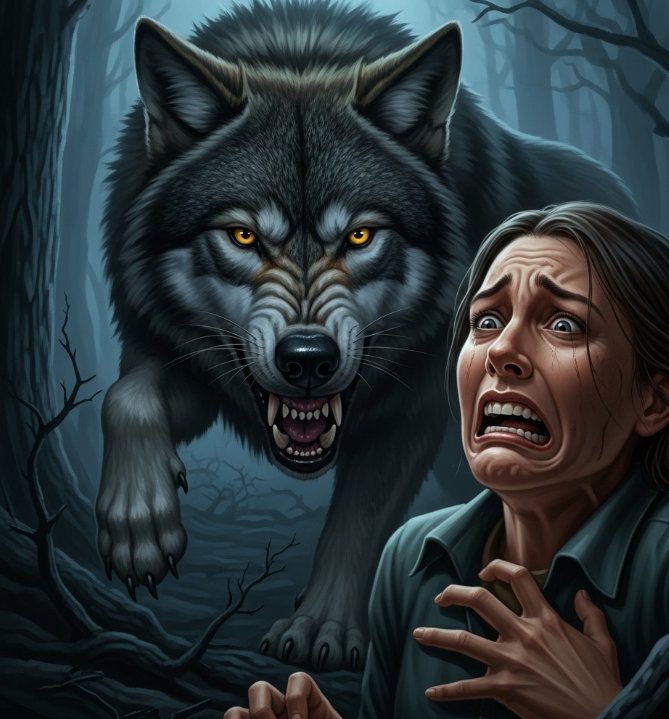Fear of animals, also known as zoophobia, affects millions of people around the world. Whether it’s dogs, spiders, birds, or larger wild animals, this fear can significantly interfere with daily life, especially if the phobia is intense or irrational. In this blog, we’ll explore what causes the fear of animals, how it manifests, and the most effective ways to treat and manage it.
What Is Fear of Animals?
Fear of animals is a specific phobia characterized by an intense and often irrational fear of certain animals. While a healthy level of caution around dangerous animals is normal, zoophobia goes beyond that. Even harmless pets or images of animals can trigger overwhelming anxiety in someone with this condition.
Common Types of Animal Phobias
People can develop fear toward nearly any animal, but here are some of the most common types:
- Arachnophobia – fear of spiders
- Ophidiophobia – fear of snakes
- Cynophobia – fear of dogs
- Ornithophobia – fear of birds
- Entomophobia – fear of insects
Each type can vary in severity, from mild discomfort to full-blown panic attacks.
What Causes Fear of Animals?
1. Childhood Experiences
A traumatic event involving an animal during childhood is a leading cause of zoophobia. For example, being chased by a dog or stung by a bee can create long-lasting fear.
2. Learned Behavior
Children often mimic their parents’ behaviors. If a parent is visibly afraid of spiders, the child may adopt that same fear.
3. Media Influence
Movies, TV shows, and news reports sometimes portray animals—especially snakes, sharks, or insects—as dangerous or deadly. These depictions can fuel fear.
4. Biological Factors
Some researchers believe our fear of animals may be evolutionary. Early humans learned to fear certain creatures as a survival mechanism.
Symptoms of Zoophobia
Recognizing the symptoms is crucial for proper diagnosis and treatment. Common symptoms include:
- Rapid heartbeat
- Shortness of breath
- Trembling or shaking
- Nausea or dizziness
- Feeling of losing control
- Avoidance behavior (e.g., refusing to go to parks or pet stores)
In severe cases, just seeing a photo of the animal can trigger anxiety.
Impact on Daily Life
The fear of animals can negatively affect various aspects of life:
- Social Life: Avoiding places where animals may be present (e.g., friends’ homes with pets).
- Outdoor Activities: Hesitation or refusal to go hiking, camping, or even to public parks.
- Mental Health: Constant worry and stress, leading to anxiety disorders or depression.
Left untreated, zoophobia can become deeply limiting and affect a person’s quality of life.

Treatment Options for Fear of Animals
1. Cognitive Behavioral Therapy (CBT)
CBT is one of the most effective methods for treating animal phobias. It helps individuals reframe their thoughts and reactions toward animals.
2. Exposure Therapy
Gradual, controlled exposure to the feared animal—starting with pictures and progressing to real-life interaction—can desensitize individuals over time.
3. Hypnotherapy
Hypnotherapy can access the subconscious mind and reprogram the fear response. It’s especially helpful for people who don’t know why they fear animals.
4. Medication
Anti-anxiety medications may be prescribed in extreme cases to manage symptoms, though they are rarely a long-term solution.
5. Mindfulness and Relaxation Techniques
Breathing exercises, guided meditation, and grounding techniques can reduce anxiety during encounters with animals.
Can Fear of Animals Be Prevented?
While not all fears can be prevented, certain strategies can help:
- Early Education: Teaching children to understand animals rather than fear them.
- Positive Exposure: Encouraging interaction with pets under safe supervision.
- Modeling Calm Behavior: Adults showing calm and respectful behavior toward animals can influence children positively.
Supporting a Loved One with Zoophobia
If someone you care about struggles with the fear of animals:
- Be patient and understanding—don’t mock or belittle their fear.
- Encourage them to seek professional help.
- Offer to accompany them to therapy or exposure sessions.
- Learn about their specific fear so you can provide better support.
Why Addressing Zoophobia Matters
Untreated fear of animals can become more intense over time. By acknowledging the fear and seeking proper treatment, individuals can regain control over their lives. Whether it’s walking down the street without panicking at the sight of a dog or enjoying nature without anxiety, overcoming zoophobia brings immense freedom and relief.
Start Your Healing Journey Today
Living with a fear of animals doesn’t have to be your reality forever. If you or a loved one are struggling with zoophobia, help is available. At Holistic Hypno Healing, certified hypnotherapist Merve provides personalized hypnotherapy sessions—both online and in-person in San Jose—to help you confront and release your fear from the root. With a calm, supportive, and professional approach, Merve has helped many clients transform fear into freedom.
Don’t let fear hold you back. Book a free 15-minute consultation today at https://holistichypnohealing.com and take the first step toward a calmer, more empowered life.

